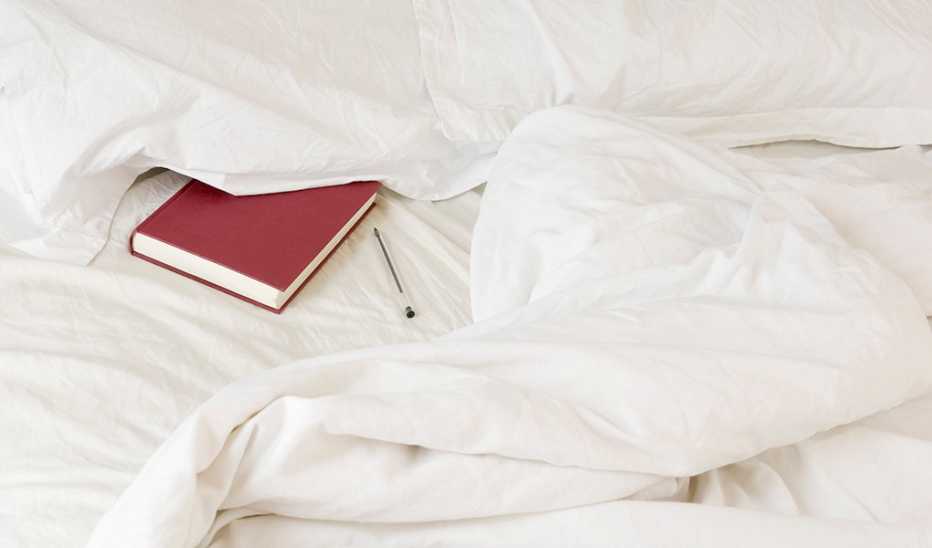Challenges


Quick Win
A sleep diary can clue you in to what’s disrupting your zzz’s, whether it’s an afternoon cup of coffee or a bedroom that’s too warm.
Try This Today
- Get prepared. Keep a notebook and pen next to your bed (or print out this template from the National Heart, Lung and Blood Institute.)
- Write it down. Before bed each night, record the following information about that day:
- Number of caffeinated drinks you had and at what time
- Number of alcoholic drinks you had and at what time
- Any naps you took, at what time and for how long
- Any workouts you did, at what time and for how long
- How sleepy you felt throughout the day. (Did you struggle to stay awake? Did you feel somewhat sluggish, fairly alert or completely alert?)
- Medicines you took
- What time you went to bed
- Wake up and record. After you get up each morning, make a note of these things:
- What time you fell asleep, if you know, or your best guess as to how long it took to drift off
- Number of times you woke up in the night
- What time you woke up
- What time you got out of bed
- How rested you felt when you got up (alert, a little tired, like you wanted to stay in bed longer)
Why
Sleep disruptions become more common as we age, but a consistent bedtime routine can help, according to AARP’s Global Council on Brain Health report “The Brain-Sleep Connection.” Health professionals often recommend sleep diaries, because they’re a free, easy and accurate way to spot potential sleep barriers you might not have considered. “Understanding your week-to-week sleep patterns is the critical first step to knowing what you need to fix,” says Eric Zhou, a psychologist in the division of sleep medicine at Harvard Medical School.











More From Staying Sharp
Practice to Activate Your Vagus Nerve
Help extend the length of your exhale
Keep a Gratitude Journal for Well-Being and Sleep
Write down things you're grateful for to improve your sleep and mental health
Let Go of Worries Before Bed
You can make sleep-disrupting thoughts disappear